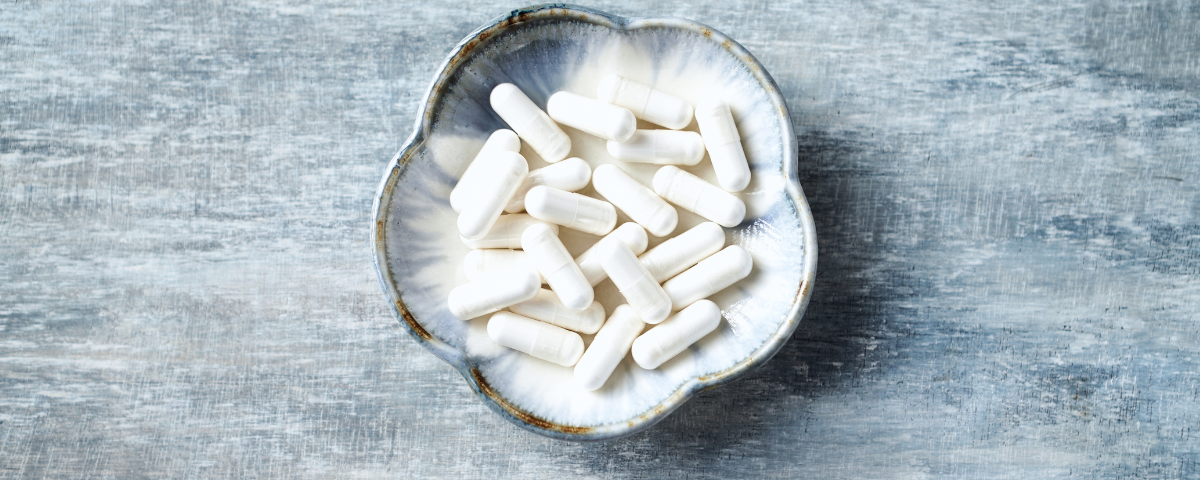One-third of the world experiences sleep issues, so researchers have been increasingly studying natural sleep aids. One supplement has emerged as a game-changer in the sleep wellness space: L-theanine for sleeping.
This unique amino acid extracted from green tea leaves might hold the key to peaceful nights. It calms the mind, allowing you to sleep more effortlessly.
Keep reading if you want a natural substance to improve your sleep without addiction. You will learn about the benefits of L-theanine and its potential side effects.
What is L-Theanine?
L-theanine, found in green teas, is becoming popular as a natural sleep aid in the wellness community. But what exactly is it, and how does it work?
Unlike most amino acids, L-theanine can directly influence brain functions. You can get this powerful amino acid from supplements or green tea. It helps with cognitive functions and promotes sleep and relaxation.
How Does L-Theanine Help You Sleep?
So, what does L-theanine do for sleep? Interestingly, it doesn’t directly induce sleep. Instead, L-theanine promotes relaxation, helping you stay sleepy at night.
L-theanine increases levels of certain brain chemicals – including levels of GABA (Gamma-Aminobutyric Acid), serotonin levels, and dopamine levels. These neurochemicals play vital roles in regulating mood, alertness, and the sleep-wake cycle, among other cognitive functions.
GABA, in particular, is an inhibitory neurotransmitter. L-theanine increases GABA levels, which calms the brain and makes sleeping easier by reducing excitatory chemicals.
L-Theanine Benefits
The question isn’t just about how much L-theanine for sleep, but also what it does for your rest. L-theanine’s benefits extend beyond merely helping you fall asleep.
Research suggests that L-theanine helps individuals fall asleep more quickly and improves sleep disturbances, sleep latency, and overall sleep quality.
But the benefits of L-theanine aren’t limited to promoting sleep and relaxation. It also shows promise in enhancing cognitive performance and can help reduce stress and anxiety.
Incorporating L-theanine into your routine could lead to long-term improvements in overall wellness and health.
Side Effects of L-Theanine
Even though L-theanine is generally considered safe, assessing potential side effects is essential.
Most people can consume L-theanine without experiencing adverse effects. However, if consumed in large doses, some individuals may experience:
- headaches
- dizziness
- upset stomach.
How Much L-Theanine Do You Take for Sleep?
Determining how much L-theanine you should take for sleep can depend on numerous factors, including age, weight, and overall health. While the optimal dosage may vary, a typical dose may range from 100 to 200 mg.
Regarding enhancing sleep quality, L-theanine supplements work most effectively with other sleep-enhancing strategies.
Such strategies can involve:
- Maintaining a consistent sleep schedule.
- Crafting a serene and comfortable sleep environment.
- Adhering to healthy sleep habits.
Lifestyle Changes to Enhance the Effects of L-Theanine
- Regular Exercise
Keeping your body active is a fantastic way to promote better sleep. Regular physical activity helps regulate your body’s circadian rhythm – our internal “clock” influencing sleep-wake cycles, hormone release, and other bodily functions.
- Balanced Diet
Your eating habits play a significant role in your sleep quality. A balanced diet of fruits, vegetables, lean proteins, and whole grains can support your body’s natural sleep cycle.
Certain foods, such as cherries, fatty fish, and almonds, may enhance your body’s production of melatonin – a hormone that regulates your sleep-wake cycle.
- Mindfulness and Relaxation Techniques
Managing your mental health is as essential for quality sleep as physical exercise and nutrition.
Practices such as yoga, meditation, and deep-breathing exercises can help reduce stress and anxiety levels, complementing the calming effects of L-theanine.
Dedicating a few minutes daily to mindfulness can make a big difference in your sleep quality.
- Establishing a Consistent Sleep Schedule
Maintaining a consistent sleep schedule is one of the most effective strategies for better sleep.
Going to bed and waking up at the same time each day helps regulate your body’s internal clock, making it easier to fall asleep and wake up.
- Creating a Sleep-Friendly Environment
Lastly, your sleep environment significantly impacts your ability to fall and stay asleep. A sleep-friendly background is dark, quiet, relaxed, and comfortable. If needed, consider investing in blackout curtains, earplugs, or a white noise machine.
L-theanine supplements can be enhanced when paired with a calming, sleep-friendly environment.
Other Natural Sleep Aids
Combining L-theanine with other natural sleep aids can make it even more effective in promoting sleep.
Let’s explore some of these other supplements:
- Melatonin: This hormone naturally produced in the body regulates your sleep-wake cycle. Supplementing with melatonin can be especially useful for those dealing with jet lag or shift work.
- Magnesium: Known to support deep, magnesium can be an excellent addition to L-theanine.
- Chamomile: This herb has been traditionally used in herbal medicine for centuries. Its calming effects may contribute to better sleep. It’s often consumed as tea.
- Ashwagandha: This ancient medicinal herb is classified as an adaptogen, meaning it can help your body manage stress, a common culprit in sleep disturbances.
L-Theanine and Caffeine: The Perfect Pairing?
If you’ve had green tea, you’ve benefited from L-Theanine and caffeine working together.
These two substances are found together in tea leaves, and they work in harmony to promote a state of calm alertness.
While caffeine is a stimulant that boosts your energy levels and alertness, L-Theanine helps to mitigate the jitters and crashes often associated with caffeine intake.
This results in a more balanced and sustained energy boost without adverse side effects.
Decaffeinated green tea is an excellent choice for those sensitive to caffeine or preferring to consume their L-Theanine in the evenings.
It provides all the benefits of L-Theanine without the potential sleep disruption from caffeine.
FAQ About L-Theanine
What does L-Theanine do?
L-Theanine is an amino acid that promotes relaxation and sleep. It increases neurotransmitters such as GABA, serotonin, and dopamine in the brain.
These neurotransmitters are vital in regulating mood, sleep, and cognitive functions.
How much is L-Theanine in green tea?
The amount of L-Theanine in green tea can differ based on the type and how it is brewed. On average, a cup of green tea can have around 5-45 mg of L-Theanine.
Does L-Theanine affect blood pressure?
Some research suggests that L-Theanine might help lower blood pressure, particularly in people with high blood pressure.
Anyone with blood pressure concerns should consult a healthcare provider before starting any new supplements.
Conclusion
Remember, it’s essential to approach sleep wellness holistically, understanding that quality sleep is a critical pillar of overall health.
Improving your sleep is essential. You can try natural sleep aids, improve your lifestyle, or learn about substances that affect sleep—every step you take towards better sleep matters.
Want to discover more about sleep wellness? Curious about other sleep supplements? Visit our blog at sleepie.ai/blog for more insightful articles and resources.
Journey with us as we unlock the secrets to sleep better and better health.
Disclaimer: The information provided in this article is for informational purposes only and is not intended to substitute for professional medical advice, diagnosis, or treatment.



